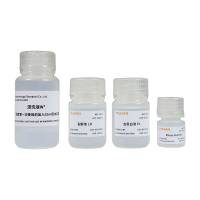Cellular Human and Viral DNA Detection by Nonisotopic In Situ Hybridization
互联网
互联网
相关产品推荐

MolPure®病毒DNA/RNA提取试剂盒(Viral DNA/RNA Kit)
¥428

CSE1L/CSE1L蛋白Recombinant Human Exportin-2 (CSE1L)重组蛋白Cellular apoptosis susceptibility protein Chromosome segregation 1-like protein Importin-alpha re-exporter蛋白
¥5268

IL-2重组蛋白|Recombinant Human IL2 Protein
¥1080

N-Butyldeoxynojirimycin,72599-27-0,film (dried <i>in situ</i>),阿拉丁
¥4326.90

γ-氨基丁酸试剂盒,用于样本中GABA含量检测,微量法,GABA Content Detection Kit
¥358
相关问答
推荐阅读
Detection of Virus Nucleic Acids by Radioactive and Nonisotopic In Situ Hybridization
PNA-In Situ Hybridization Method for Detection of HIV-1 DNA in Virus-Infected Cells and Subsequent Detection of Cellular and Viral Proteins
In Situ Hybridization Using cRNA Probes: Isotopic and Nonisotopic Detection Methods

